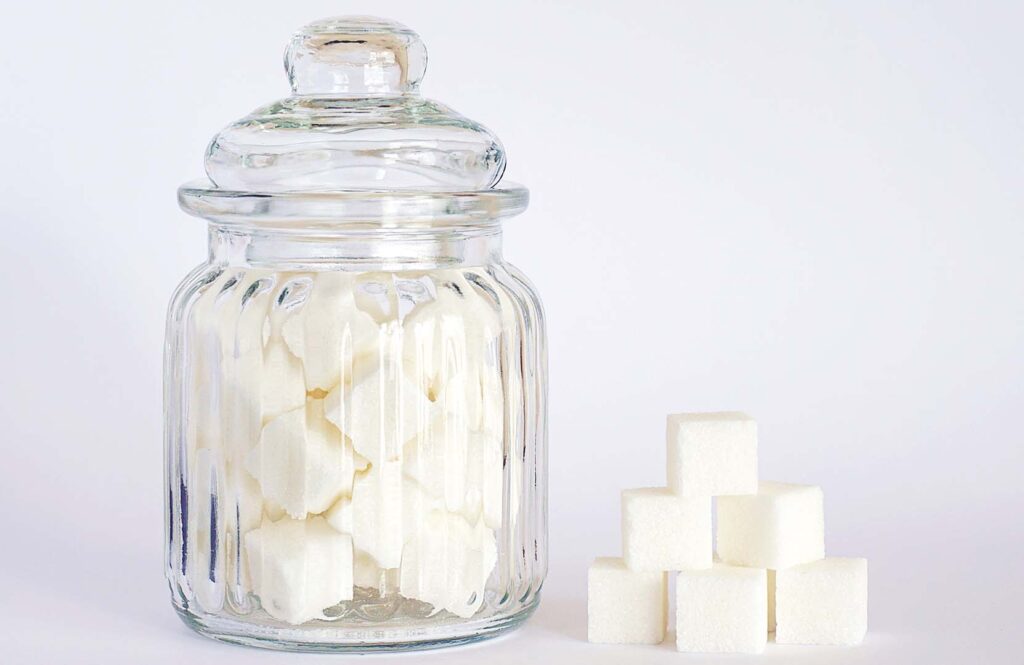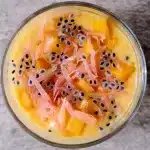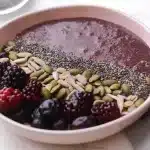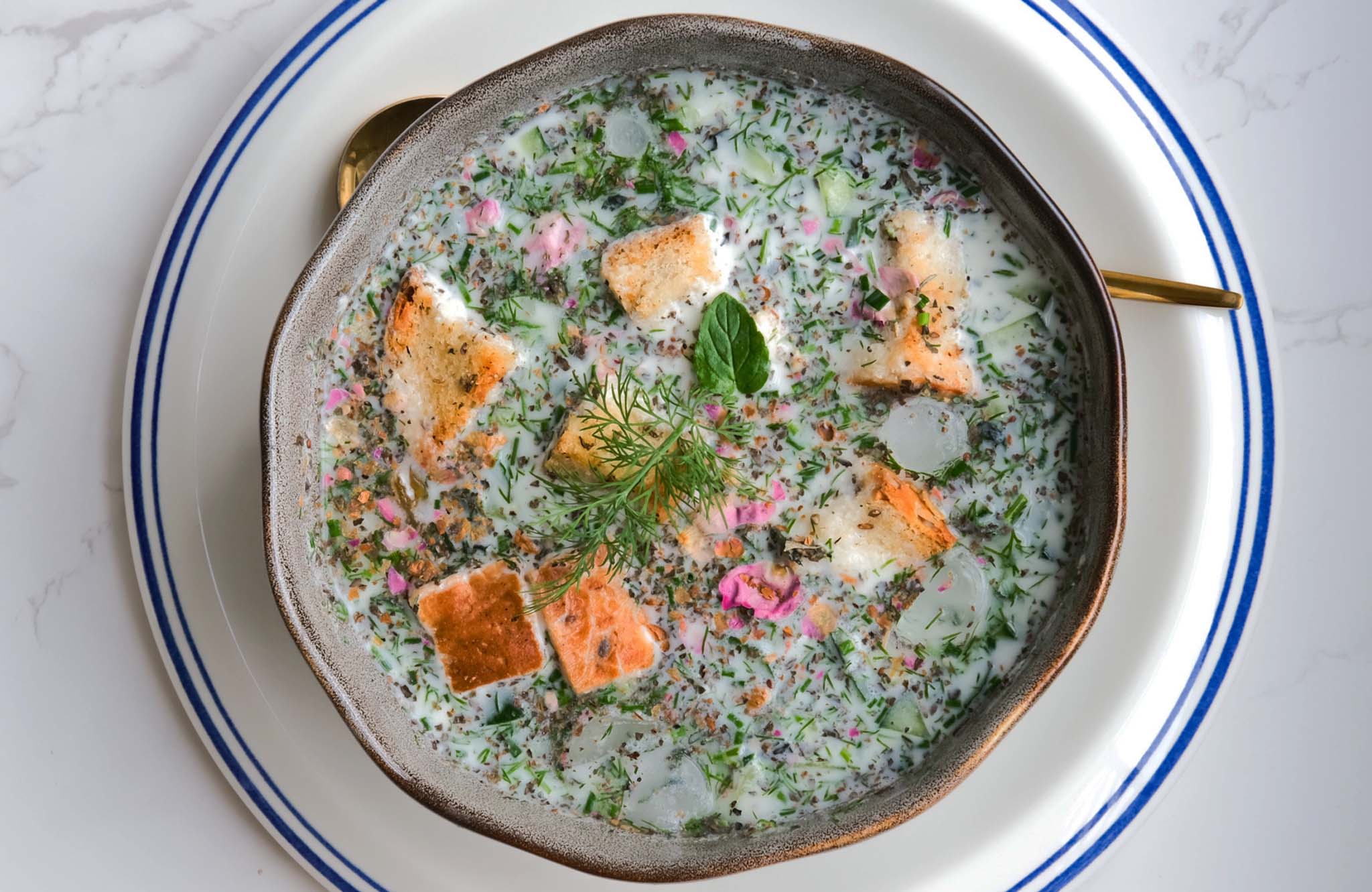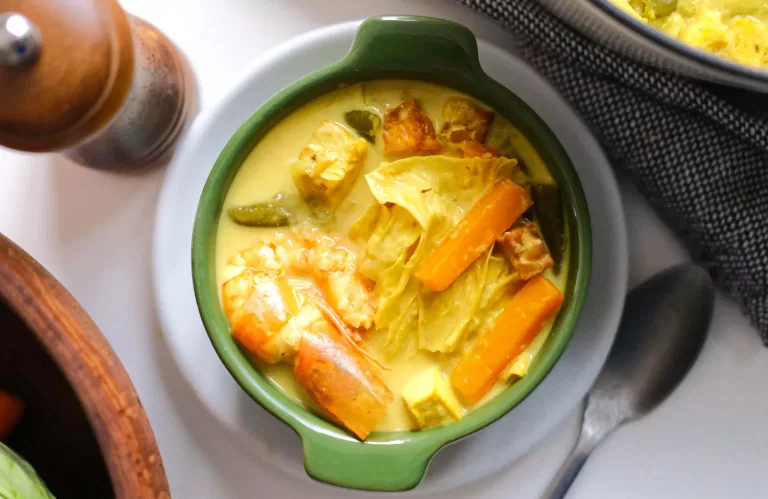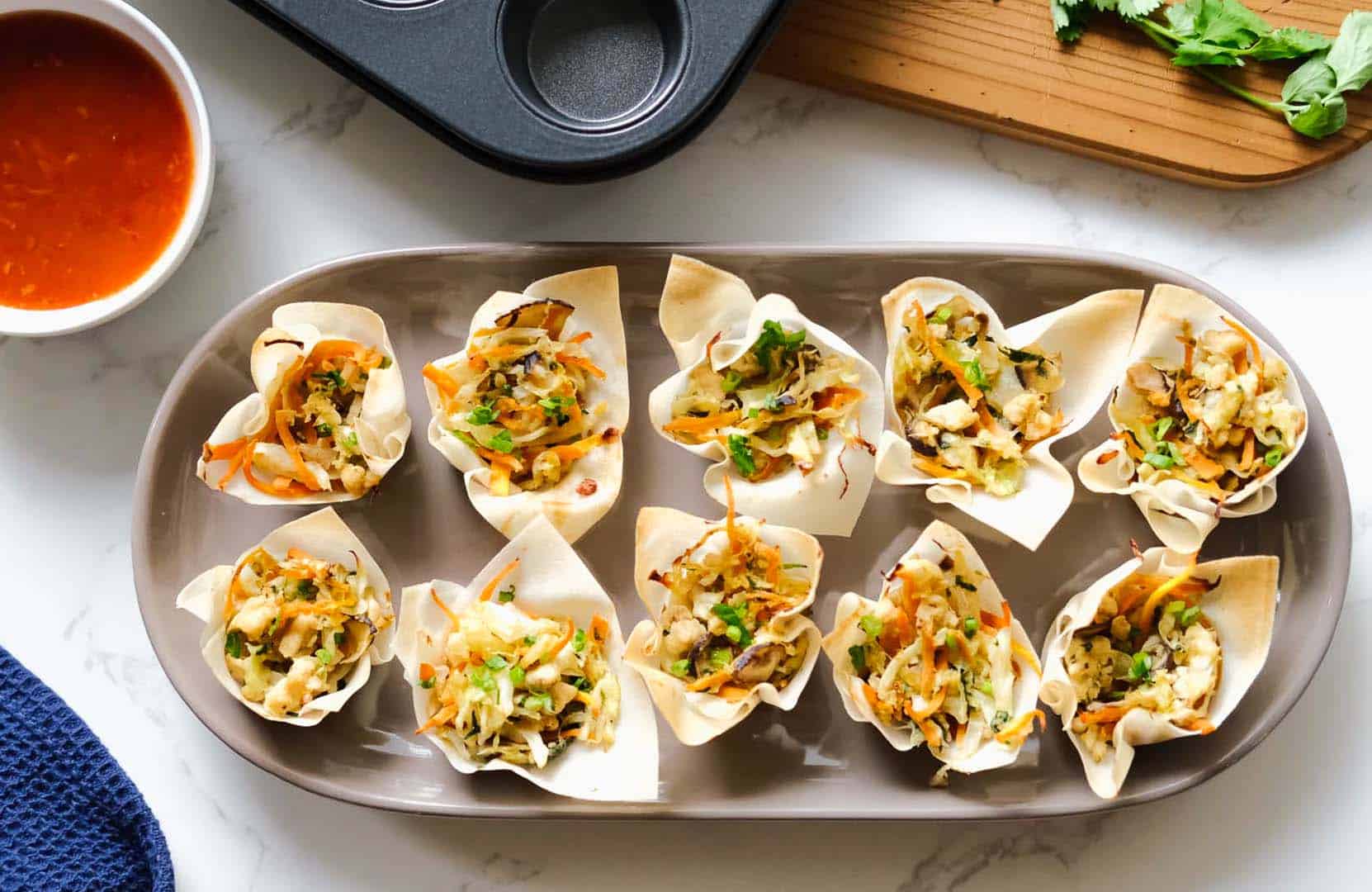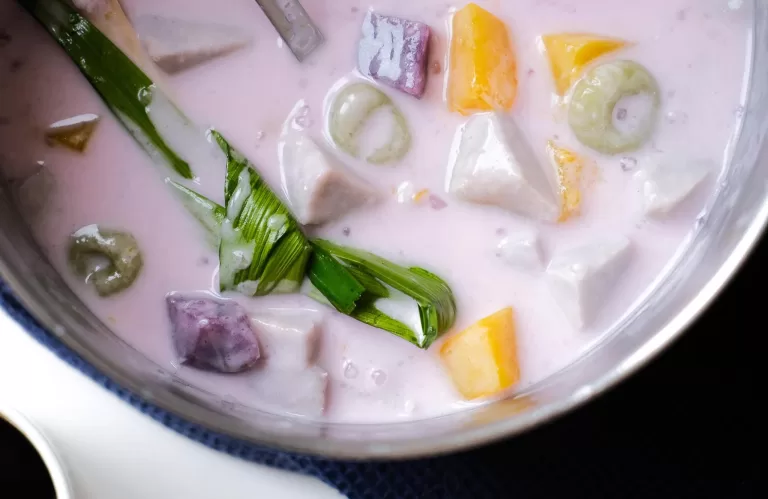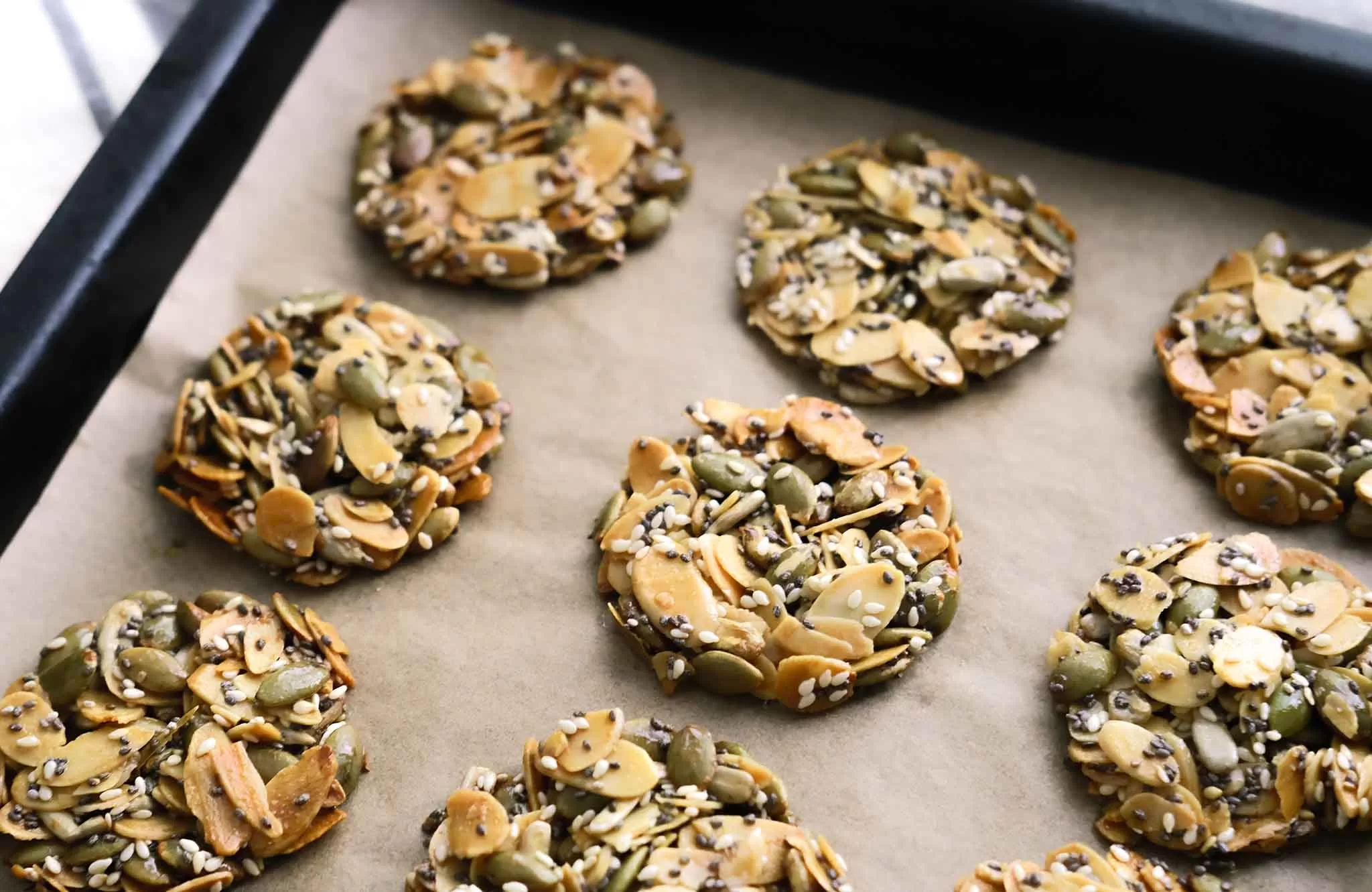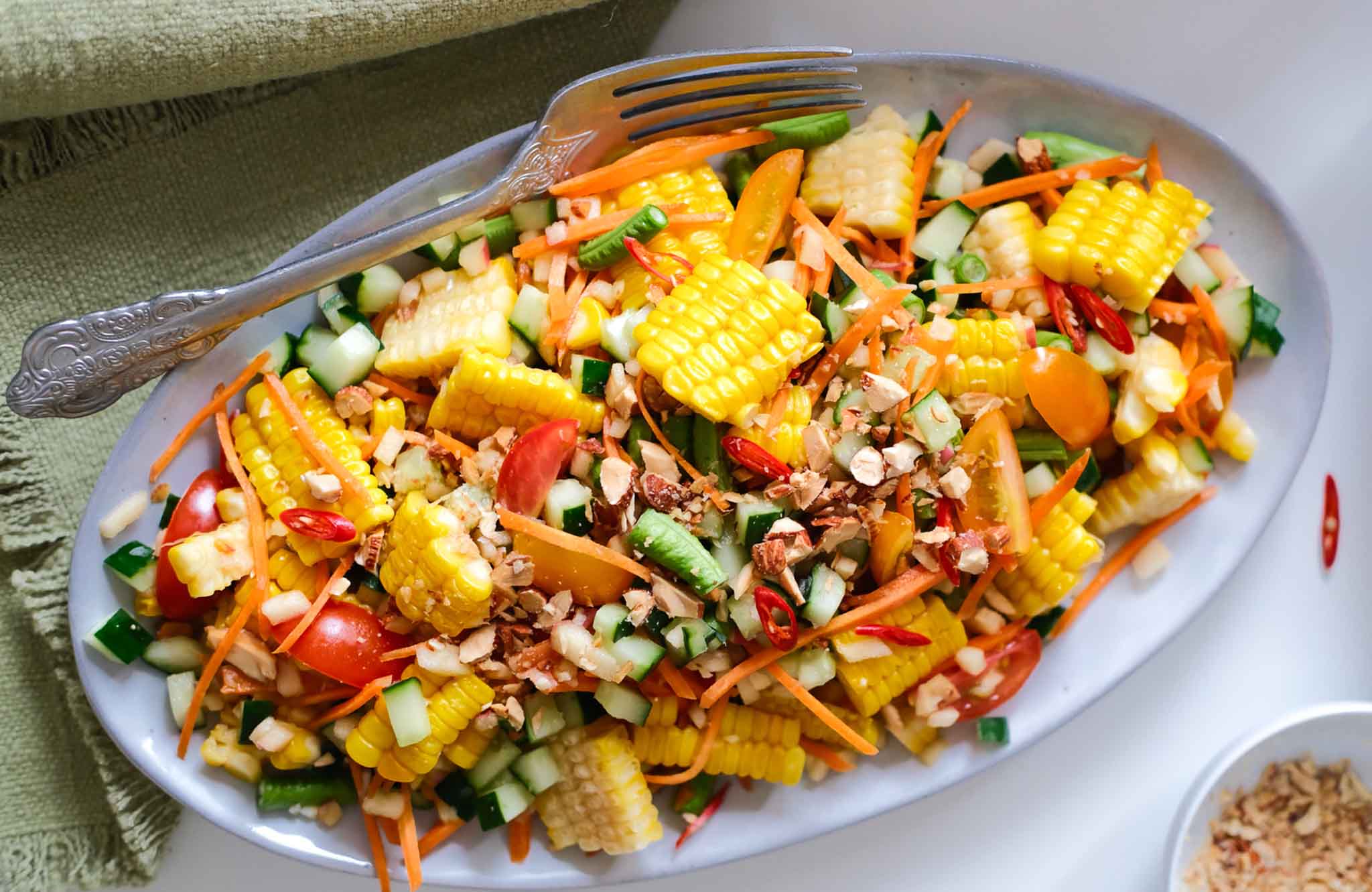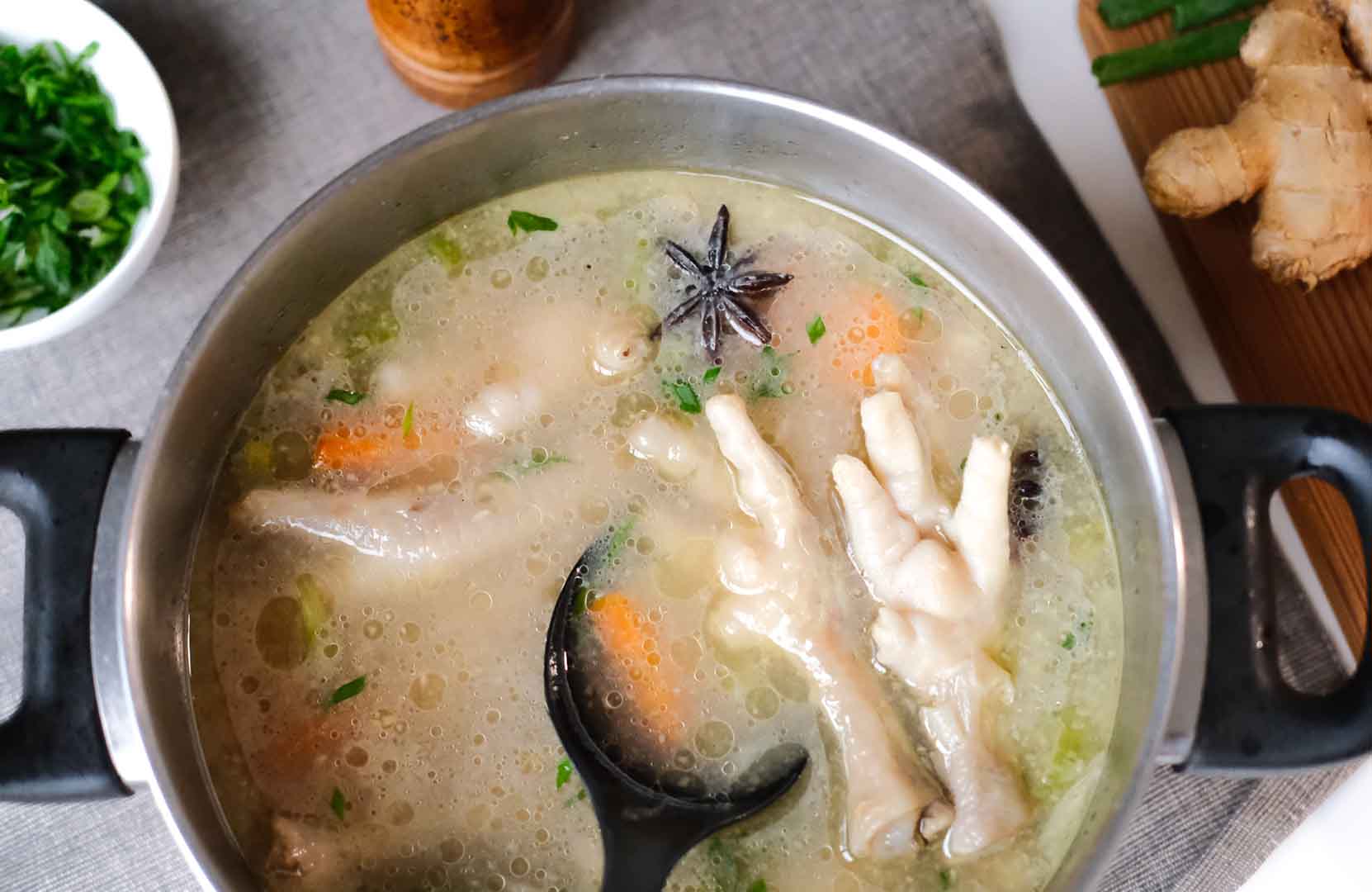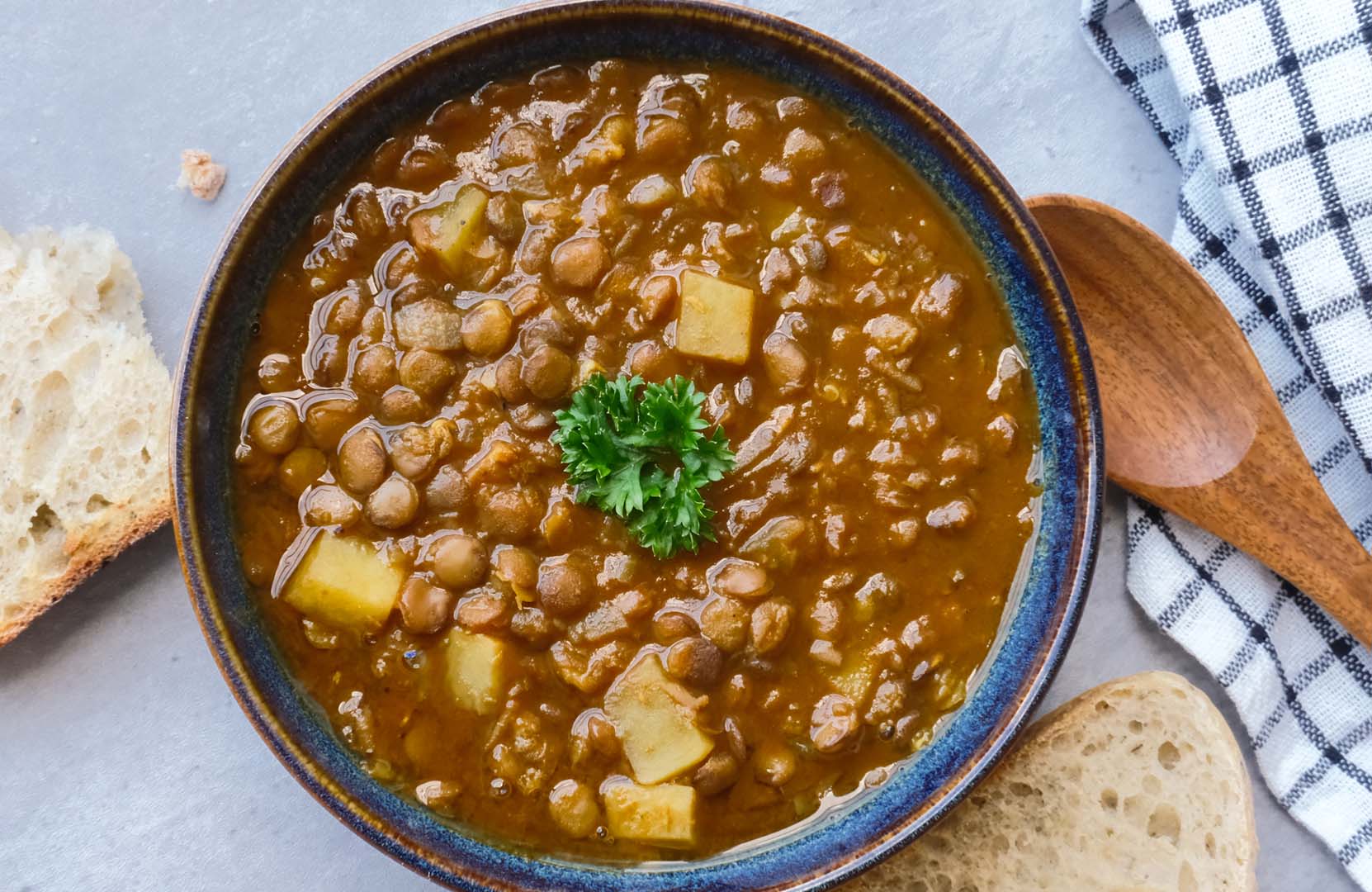As a sweet tooth myself, my relationship with sugar has changed since I was diagnosed with an auto-immune disease – Psoriasis and arthritis. Diet is one of the crucial aspects of my lifestyle that I needed to reassess.
The hidden sugars in everyday foods
My journey in healthy eating has led me to a discovery about my diet. It was shocking to find out the amount of sugar hidden in many foods we eat daily.
Condiments such as ketchup, sauces, salad dressing, and mayonnaise are often loaded with sugar. These items are frequently used in meals, alongside white sugar when cooking.
Even though you cook at home, adding these ingredients with added sugar can still make your meal unhealthy. Not to mention other foods we eat as a snack or in between meals, such as peanut butter, jam, cereal, chocolate, 3 in 1, sodas, instant noodles, chips, etc that are packed with added sugar, adding to our daily sugar consumption.
I have come to realize that if I fill myself with this empty sugar, there is not much room for the beneficial foods my body needs that come with the sweetness.
The problem with overconsuming sugar
Consuming too much added sugar can cause chronic inflammation such as type 2 diabetes, high blood pressure, cardiovascular disease, and fatty liver disease. In my case, where I can see and feel the inflammation on my skin and joints, overindulging in sugary foods can quickly show in my flares-up.
To protect my health, I’ve begun making changes. Instead of cooking with condiments and white sugar, I have reduced the amount of sugar and opted for natural sweeteners instead.
My top choice for natural sweeteners
- Dates
- Fruits – Banana, Mango
- Homemade apple sauce
- Homemade pear sauce
- Freshly squeezed/blended juice (eg: Pineapple juice, orange juice)
- Natural honey
- Occasionally, natural palm sugar
- Monk fruit sweetener
Compared to white sugar, which is an empty carb, natural sweeteners contain vitamins, minerals, and phytochemical compounds that work as antioxidants.
Antioxidant – A substance that protects cells from the damage caused by free radicals. Free radicals may cause chronic diseases such as cancer, heart disease, stroke, and other diseases of aging.
The nutrients in these natural sweeteners
Let’s look at the beneficial nutrients these natural sweeteners offer:
| Items | Vitamins | Minerals (mg) | Nutrients (g) | Antioxidants | Sugar (g) |
|---|---|---|---|---|---|
| Dates – 2 Medjool | Vitamin B6 0.12 mg | Iron 1.216 mg | Magnesium 26 mg | Copper 0.174 mg | Potassium 334 mg | Fiber 3.2g | Carbs 36g | Carotenoid and phenolic acid | 32g |
| Apple -medium (182g) | Vitamin C 8.37 | Vitamin B6 0.075 | Iron 0.218 mg | Magnesium 9.1 mg | Phosporus 20 mg | Potassium 195 mg | Fiber 4.37 g | Carbs 25.1g | Quercetin, Catechin, Chlorogenic acid | 18.9g |
| Pear – Medium size (178g) | Vitamin C 7.65 | Vitamin K 7.83 µg | Iron 0.32 | Magnesium 12.5 mg | Phosporus 21.4 mg | Potassium 206 mg | Copper 0.146 mg | Fiber 6g | Carbs 27g | Quercetin, anthocyanins, flavonoid | 17.4g |
| Banana – 1 medium size (118) | Vitamin C 10.3 mg | Vitamin B6 0.433 mg | Iron 0.307 mg | Magnesium 31.9 mg | Phosporus 26 mg | Potassium 422 mg | Fiber 3.07g | Carbs 26.9g | Flavonoid | 14.4g |
| Freshly squeezed orange juice – (100g) | Vitamin C 26.9 mg | Iron 0.06 mg | Magnesium 10.6 mg | Phosporus 18 mg | Potassium 180 mg | Carbs 10.3g | Vitamin C, carotenoids | 8.28g |
| Blended pineapple juice – not filtered – (100g) | Vitamin C 58.6 mg | Magnesium 13.4 mg | Potassium 137 mg | Fiber 0.9g | Carbs 14.1g | Vitamin C | 11.4g |
| Natural honey – 1 tbsp of raw honey | Magnesium, Mg 0.4 mg | Potassium 10.4 mg | Fiber 0.04g | Carbs 16.5g | Polyphenols | 16.4g |
The table above shows that each fruit contains varying levels of nutrients, vitamins, or minerals. Medjool dates are the sweetest choice of sweetener. But they are not just sweet. Together with honey, they contain antioxidant compounds that can have anti-inflammatory benefits.
Pineapples and oranges are known for being high in vitamin C—remember to include the orange pulps to benefit the most from vitamin C. Pear is my next favorite fruit as it is high in fiber. The pear, which has a pink hue, contains an antioxidant also present in berries: anthocyanin.
Bananas are not only creamy and sweet, resembling ice cream but also high in Potassium. Our body needs potassium to help regulate fluid, send nerve signals, and regulate muscle contractions.
Bonus: If a recipe calls for sugar in the form of powder, I use natural palm sugar, known in the West as coconut palm sugar. Palm sugar contains traces of minerals and vitamins than white sugar and is minimally processed. Since it is abundantly sourced in my country, Malaysia, I keep it as a staple and use it moderately.
Benefits of natural sweeteners compared to refined white sugar
The sugar from the fruits I listed above, also known as fructose, is surprisingly sweeter than table sugar. Thanks to the sweetness and the distinct natural flavor of the fruits, they are pleasant to our taste buds.
Because of their fiber content, these sweet fruits are lower on the Glycemic Index, meaning they cause a gradual rise in blood sugar levels rather than a sudden spike.
Fruits are generally rich in vitamins and minerals essential in maintaining health. Vitamin C in oranges and pineapple is well known for its immune-boosting benefits. Meanwhile, bananas, a powerhouse for potassium, can help maintain healthy blood pressure levels.
The natural sweeteners in the fruits above contain flavonoids, polyphenols, and phytochemicals, which, if taken in appropriate amounts, offer anti-inflammatory benefits.
How I use natural sweeteners in my foods
I use these natural sweeteners interchangeably in my foods. Of course, not all at once, so here’s how they fit into my daily eating.
In my home-cooked meals
Whenever I make some traditional Asian foods that require sweetness to balance the herbal taste, I use palm sugar to swap white refined sugar. Those foods include soups, marination, and homemade sauce. It can be seen in my recipes such as
- Vegan Tom Kha style with coconut milk
- Lemongrass chicken noodle salad
- Oven-steamed fish with garlic, ginger and lime
- Healthy Korean noodles-Japchae
Although I have reduced sugar a lot, I still allow myself to indulge in foods I grew up with from time to time. With simple healthy tweaks and ingredient substitutions, our everyday food can be healthier than what we used to have, so there is no need to cut it completely.
As sugar substitute in desserts
As a recovering sweet tooth, I have switched from commercial sweets and desserts to homemade desserts. The main reason is that I can benefit from the nutritious, sweet fruits while still satisfying my palate.
So, I used sweet fruits such as bananas and mangoes instead of white sugar and white flour in my desserts. For instance, this gingerbread bundt cake is made with oats and Greek yogurt sweetened with bananas and dates.

Another dessert recipe I have is this frozen mango tarts in which I use mango as the main component and crushed nuts as the base of the tarts.
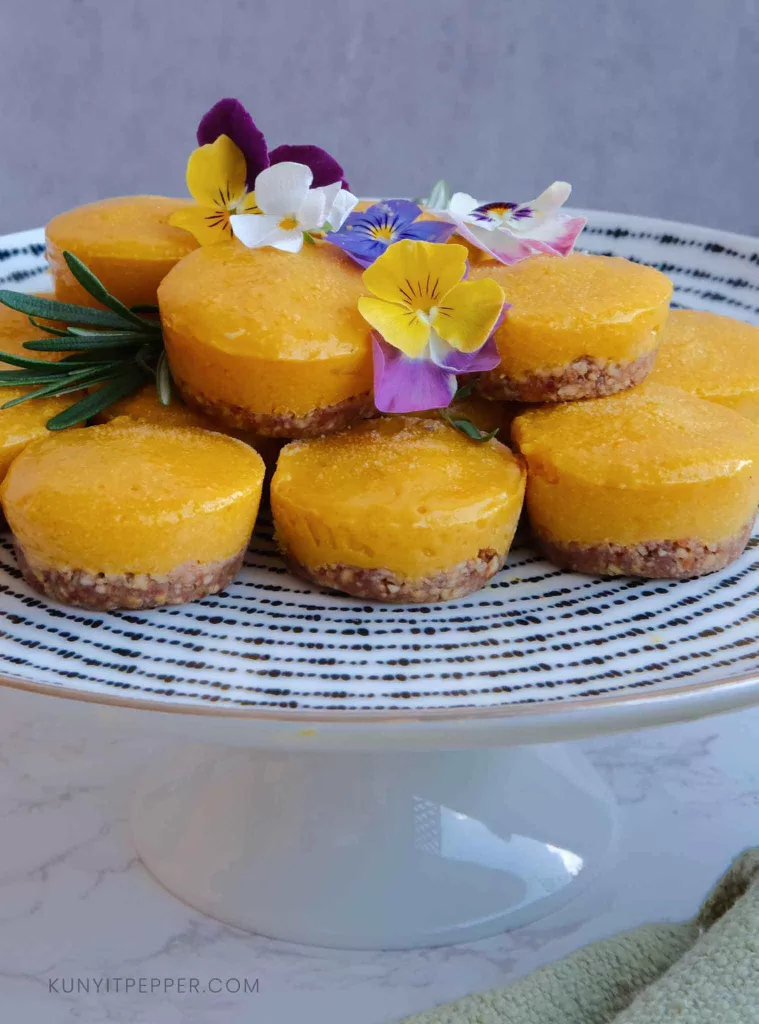
Adding flavor to my green smoothies
Every day before my lunch, I make green smoothies with a few greens, including spinach and celery. I add slices of apple or pear to make them slightly sweet and hence more delicious. For a creamy smoothie recipe, you can also use papaya, banana, and mango.
The key to eating healthy is to make it appetizing to your taste buds without overdoing it. When you make healthy food tasty, it’s easier to sustain
Flavoring up my salad dressing
Adding natural sweeteners to salad dressing makes eating salad interesting, especially on those days when it’s hard to eat some greens. I use them for the same purpose as my smoothie: to make greens more delicious.
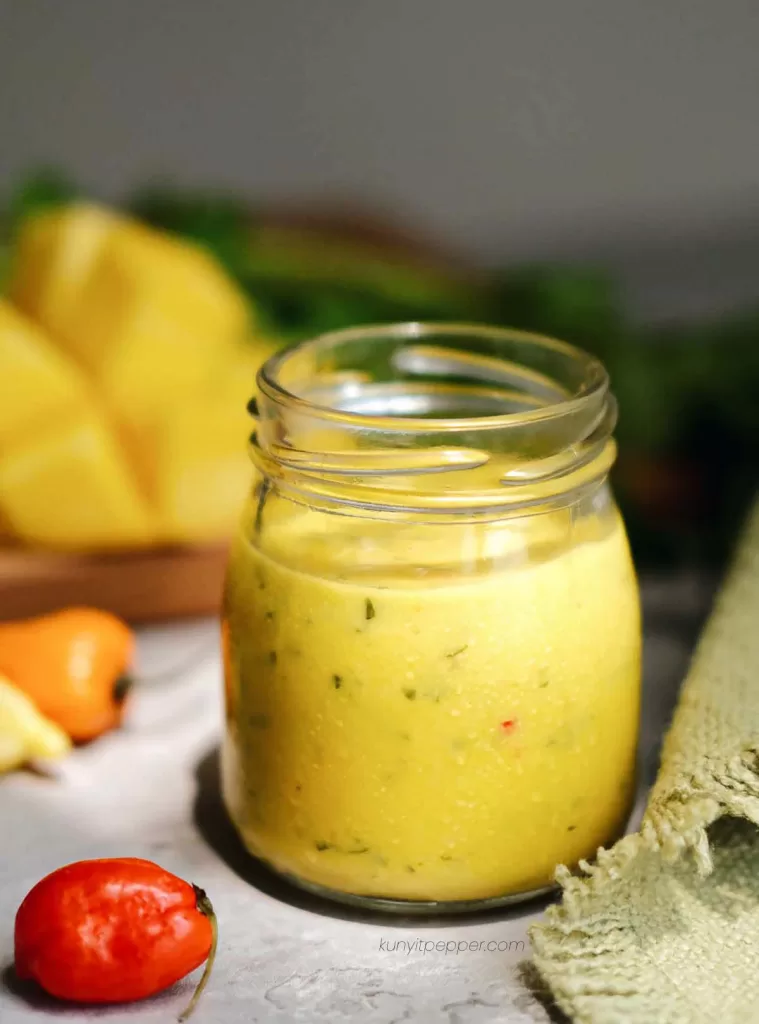
You can see this in this Mango vinaigrette, Persian sumac salad dressing, and Carrot ginger dressing. I added natural sweeteners like honey, freshly squeezed orange, and mango in those dressings. And I can assure you it’s worth the try.
Some salad dressings you buy in the grocery store contain a lot of added sugar, and that’s probably what makes you stick with them, apart from the convenience. So, instead, why not prep them once, add a little fruit you love, and keep them in the fridge to use whenever you want?
Drizzle over
This applies to liquid natural sweeteners such as honey, apple sauce, pear sauce, and date sauce. I use them in yogurt bowls, protein pancakes, mixed granola, and lemon and ginger tea.
If you don’t have time to prep them, having good-quality honey in your pantry can be convenient, and they can stay for long.
On its own
A mixed bowl of fruits or a single-cut fruit is an effortless way to get that nutrient load while getting your sweet craving fixed. This is especially useful when I go for travel. Sometimes, my stomach does not do well in a new environment, but loading up some high-fiber fruits helps to reset my stomach.
Date with plain tea. Instead of sugar cubes dissolved in tea, having a date next to a sugar-free tea will do the trick.
Important Considerations
It is true that an apple a day keeps the doctors away. But let’s not ignore the word ‘an’ before apple, mentioning the amount of consumption. While it’s good to eat fruit daily, it is also important to consume them in moderation.
Although these fruits contain minerals and vitamins, you should not overeat them solely for the nutrients. Too much sweet food (although it’s natural) can overwork your kidneys, leading to many chronic diseases.
By incorporating natural sweeteners consciously in moderation, we can enjoy sweetness while supporting our health goals.
I have read that each of us has different reactions to sweet fruits. Just because it works on me does not mean it will work on you the same way. So, it’s best to consult your doctor if you have any concerns with the foods mentioned above.
What do you use as a sweetening agent for your foods? If you could let me know in the comment below, I’d be happy to try your suggestion!


